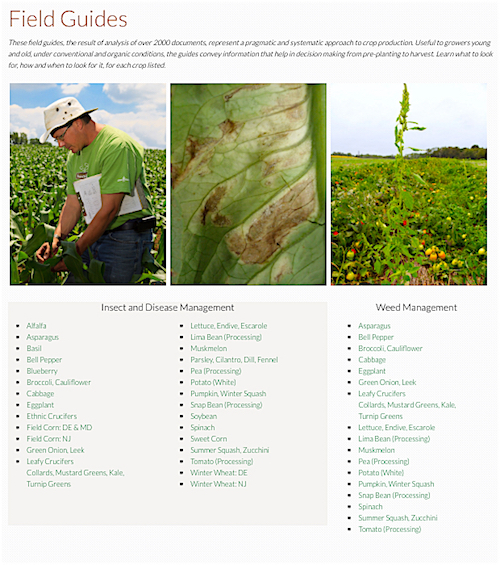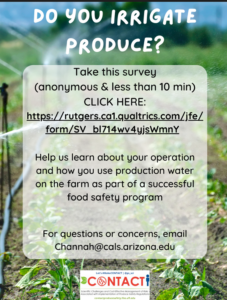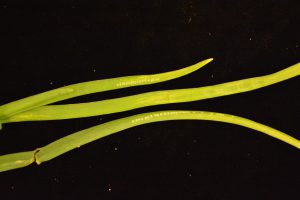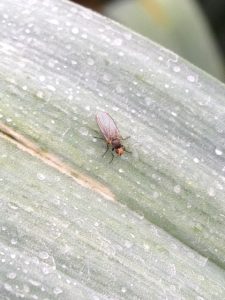Sweet Corn
Scattered European corn borer (ECB) moths are now being captured in central and northern counties, and this insect is certainly active in southern parts of the state. Numbers are quite low. It remains to be seen whether this first flight will amount to much, but recent years’ catches give no reason to suspect that a large population will develop. Whorl corn is the primary target for egg laying, but as yet, scouts have reported no signs of feeding injury. In northern and central counties, corn plantings that were started on/under plastic are now reaching a size that will support ECB larvae. We expect to encounter some level of feeding over the next 2 weeks, although the majority of plantings have not required insecticide treatments for ECB prior to full tassel in the past several years.
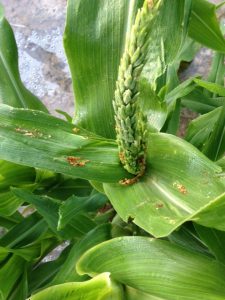 Look for the characteristic “shot-hole” type of feeding (photo below at right) and consider treating when infested plants exceed 12% in a 50 plant sample. As plantings proceed to the pre-tassel stage, ECB larvae may be found in emerging tassels (see photo at left). It is a good idea to treat individual plantings as they move into the full tassel/first silk stage one time. This eliminates any ECB larvae that have emerged with the tassels as they begin to move down the stalk to re-enter near developing ears.
Look for the characteristic “shot-hole” type of feeding (photo below at right) and consider treating when infested plants exceed 12% in a 50 plant sample. As plantings proceed to the pre-tassel stage, ECB larvae may be found in emerging tassels (see photo at left). It is a good idea to treat individual plantings as they move into the full tassel/first silk stage one time. This eliminates any ECB larvae that have emerged with the tassels as they begin to move down the stalk to re-enter near developing ears.
Useful insecticides for this particular application include synthetic 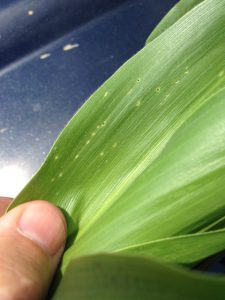 pyrethroids (IRAC Grp 3), spinosyns (including OMRI approved Entrust) IRAC Grp 5), and diamides such as Coragen or Vantacor (IRAC Grp 28) or materials such as Besiege which include the active ingredient in Coragen. Synthetic pyrethroids alone should NOT be used for corn earworm (CEW) protection on silking corn. Control with these materials is very inconsistent.
pyrethroids (IRAC Grp 3), spinosyns (including OMRI approved Entrust) IRAC Grp 5), and diamides such as Coragen or Vantacor (IRAC Grp 28) or materials such as Besiege which include the active ingredient in Coragen. Synthetic pyrethroids alone should NOT be used for corn earworm (CEW) protection on silking corn. Control with these materials is very inconsistent.
The highest nightly trap catches* of ECB for the week ending 5/24/23 are as follows:
| Asbury 1 | Matawan 1 |
| Chester 1 | New Egypt 1 |
| Denville 1 | Old Bridge 1 |
| Long Valley 1 | Oldwick 1 |
* No blacklight traps are in operation south of the Columbus (Burlington Co.) area this season.
 Articles in this section contain information helpful to the NJ commercial organic grower.
Articles in this section contain information helpful to the NJ commercial organic grower.